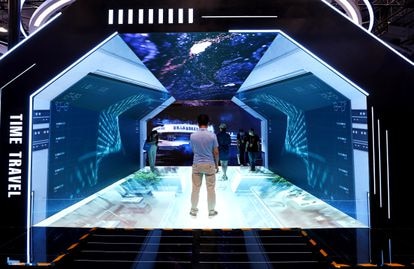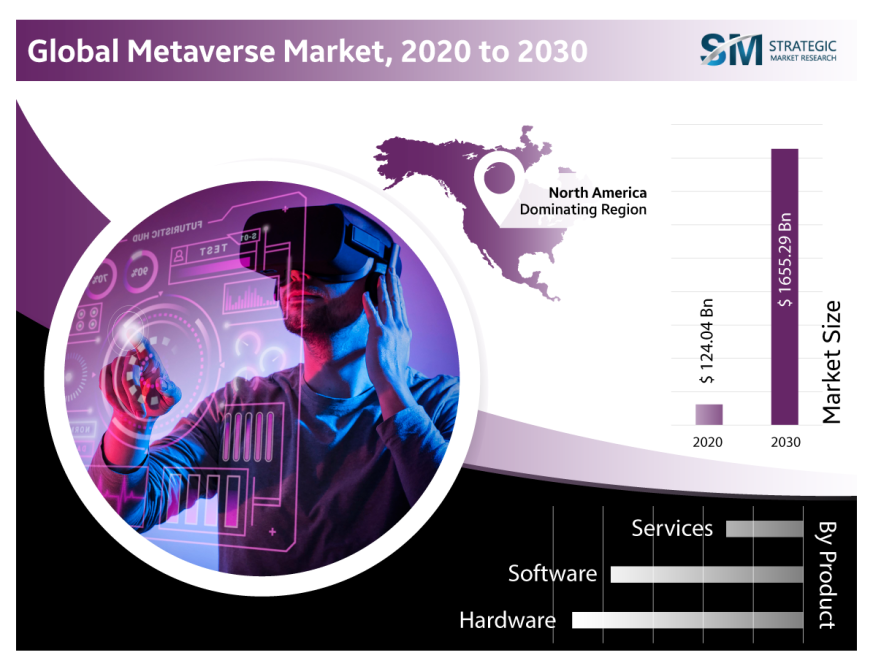
Table of Contents
The Chinese language authorities has already jumped on the metaverse bandwagon, that immersive digital world being developed by firms like Meta. However the nation’s leaders don’t intend to compete with the US for primacy on this new race – they wish to construct a home metaverse tailor-made to Chinese language Communist Occasion (CCP) aims. It’s a imaginative and prescient that permits the non-public sector to develop key expertise for the Asian big, but in addition maintains what the federal government euphemistically calls “social peace.”
The state equipment’s wheels are already turning. In 2021, greater than 10,000 metaverse-related emblems have been registered in China, in comparison with lower than 1,000 in 2020 and 2019. To this point in 2022, 16,000 trademark purposes have been submitted. China’s tech giants – Tencent, Alibaba and Baidu – are investing closely within the metaverse, though at ranges far beneath Meta and Microsoft. ByteDance, the corporate behind TikTok, online game platform BiliBili and augmented actuality (AR) glasses developer Nreal are another Chinese language firms making strikes into the metaverse. Morgan Stanley estimates the Chinese language metaverse (Chinaverse) market measurement at $8 trillion, and J.P. Morgan predicts that it might triple China’s gaming market from $44 billion to over $131 billion.
The China Institute of Up to date Worldwide Relations (CICIR) a number one Chinese language think-tank, formally kicked-off the Chinaverse initiative in October 2021. A couple of days after Meta CEO Mark Zuckerberg introduced his all-in guess on the metaverse, CICIR launched “The Metaverse and Nationwide Safety,” an evaluation of the nationwide safety challenges posed by this new setting. In what is taken into account to be the CCP’s first official assertion on the topic, the CICIR report says, “It [the metaverse] may have a significant social, political and financial influence on international locations… and on political and cultural safety… it might result in main modifications within the social construction.” Conclusion: China must be a part of the metaverse, however needs it to be nicely managed.

The identical month, China created its Metaverse Business Committee (MIC), a state-backed group for coordinating metaverse improvement with scientists and almost 150 expertise firms. In Could, MIC Secretary Basic Luo Jun mentioned: “We’re going to embrace the fourth era of the web, which would be the period of the metaverse.” Meaning “serving our nation by selling the event of the brand new digital world and the digital economic system,” wrote Wu Zhongze, former vice minister of science and expertise.
Others have been extra essential. Chinese language economist and on-line celeb Ren Zeping warned that the metaverse might trigger a decline in marriage and beginning charges if individuals spend all their time relating to at least one one other within the digital world. CCP-owned The Individuals’s Day by day revealed a number of articles final yr saying that the general public “ought to be prudent with the present metaverse craze,” and cautioned that individuals shopping for digital property “might get burned.” The Financial Day by day, one other state-controlled Chinese language media outlet, additionally harassed the necessity to management asset hypothesis within the metaverse.
Authorities-business alignment
However the die has been forged. This was made clear on the World Metaverse Congress 2022, a significant convention in Beijing that introduced collectively main trade gamers and senior authorities officers in August. The federal government launched a fund to help startups targeted on the metaverse. Native authorities motion plans are additionally being established to kick-start analysis facilities and industrial vegetation. “Just like the aerospace trade, it’s a decentralized method that’s coordinated centrally and executed regionally,” mentioned Raquel Jorge, a expertise coverage analyst on the Elcano Royal Institute for Worldwide and Strategic Research (Madrid, Spain). In August, Beijing native authorities introduced a two-year plan (2022-2024) alongside the traces of Shanghai’s plan, which has $51 billion in funding. Wuhan and Hefei are different megacities which are already within the sport. “They’re creating what the European Union calls good territories – a number of interconnected provinces engaged on the identical initiatives,” mentioned Jorge.
One of many causes for this decentralized method is the metaverse expertise itself. It’s truly not a single expertise, however a mixture of synthetic intelligence (AI), cloud computing, digital and augmented actuality, blockchain, fee platforms, graphics simulation, robotics and extra. “Judging by the strikes they’ve made to date, it seems that they’re engaged on primary industries first to develop improvements that complement present applied sciences,” mentioned Jorge.

In 2017, the Chinese language authorities set its sights on being the world chief in AI by 2030, and introduced an enormous $150 billion funding that far exceeded the capability of every other nation. In keeping with a examine by the World Mental Property Group, in 2018, China already owned 57% of the registered AI patents, and 17 of the 20 main AI establishments on this planet have been Chinese language. All this begs the query – will China pump these sorts of assets into the metaverse?
“China is being reactive. In the intervening time, it doesn’t contemplate the metaverse to be a strategic sector. However AI, good cities, computing and the web of issues are strategic for China, and Beijing is aware of that dominance in these applied sciences will give it technological hegemony,” mentioned technopolitics professional Ekaitz Cancela, from Spain’s Web Interdisciplinary Institute on the Open College of Catalonia. “China watched firms like Meta and Microsoft going all-in, however determined to attend and watch what occurs. If the metaverse seems to be nothing greater than a bubble, China will maintain making progress with the underlying applied sciences and apply them in different areas. But when the metaverse is actual, then China shall be able to step on the fuel and never concede any market share,” mentioned Cancela.
A managed setting
It’s been virtually a yr since Meta proprietor Mark Zuckerberg introduced his plans for “the pure evolution of the web.” The younger billionaire described a not-too-distant future through which we’ll all don AR glasses and spend a number of hours a day navigating a hyper-realistic digital setting. All the pieces we see, hear and contact within the metaverse will appear actual, however will truly be nothing greater than ones and zeros. We’ll enter this computer-designed world to play, store, work, work together with mates and play sports activities.
Zuckerberg’s massive guess is, above all, a type of escapism. That is additionally how Portuguese politician and seasoned China watcher Bruno Maçães sees it. “I do see one technique to reconcile the metaverse with CCP pursuits. Moderately than utilizing the metaverse to invent purely imaginary worlds, it might be doable to make use of it to create altered variations of the actual world,” wrote the previous Portuguese secretary of state for European affairs in Metropolis Journal.

China is already exploiting the metaverse to advertise regime loyalty. “The federal government has arrange a CCP instructing middle to foster patriotic values. Beijing views this as a pandemic-resistant avenue for immersive coaching. They’re additionally engaged on a digital manufacturing facility idea that may drastically cut back power, water and uncooked materials consumption by avoiding the necessity to develop prototypes previous to the manufacturing course of,” mentioned Manu Monasterio, a professor of synthetic intelligence and metaverse immersive advertising and marketing synthetic intelligence, who can be a China professional who has lived within the nation for over a decade.
Chinese language residents are the dream goal of metaverse boosters. Sixty-two p.c of younger individuals play video video games each day, the sphere through which the metaverse presently has the best potential. In keeping with a survey by the World Financial Discussion board, 75% of the Chinese language inhabitants say they know what the metaverse is, in contrast with 28% of the French public.
Nonetheless, anybody who needs in on the Chinaverse should go muster with the federal government. That is already the case with video video games, that are closely regulated. Earlier than going to market, video games should first be accepted by Beijing, which prohibits any content material thought-about obscene or with extreme blood and violence. Reuters experiences that the Chinese language authorities is learning a registration system for metaverse communities aimed toward stopping them from influencing wider public opinion and inflicting financial or monetary shocks. One American businessman with a number of initiatives in China informed Reuters that when Chinese language customers are prepared to present metaverse-related expertise a shot, “… then there shall be mass adoption at a degree that I don’t suppose will occur within the West almost as fast.”


